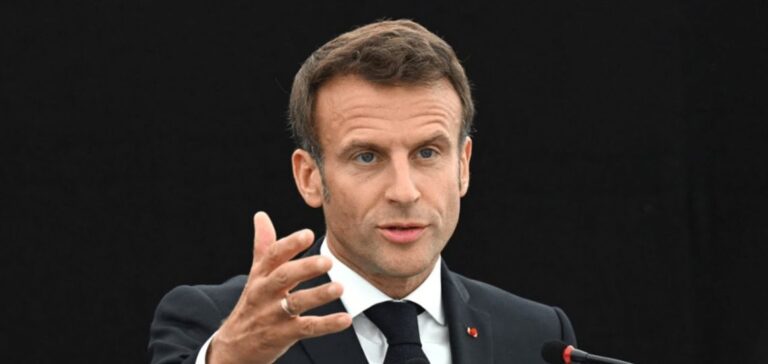The condemnation of the state for climate inaction is “not for my apple” but for the period 2015-2018, Emmanuel Macron cleared himself in a video posted Sunday on social networks, defending his environmental record.
The head of state had promised a week ago to answer questions from the French on the “ecological challenge”. His first answers to these questions are contained in a 12-minute video.
Picking up on a recurring argument from the left-wing opposition, an anonymous @Melvak_ asked him, “How can you get convicted twice for climate inaction and still have the audacity to pretend you can justify yourself on Twitter?”
“We were condemned for climate inaction over the period 2015-2018″ when “France did not meet the targets,” President Macron replied, assuring him that he had begun to put the “brakes on” since his election in 2017.
“You are very nice Melvak to try to stick me one on Twitter, but the condemnation for climate inaction is rather for the period before, not for my apple,” he then replies, in the offensive and direct tone that characterizes the whole video. “Let’s avoid talking nonsense and accusing each other”.
Last July, the Council of State nevertheless once again summoned the State “to act more (…) to respect its commitments against global warming”.
Emmanuel Macron, often criticized by environmental activists who consider his action too timid and out of step with a voluntarist discourse on the international scene, assures that “we are not waiting for the catastrophe”.
“We are all worried, we see the consequences of the disruption,” he said, explaining that “ecological planning, declined sector by sector,” will “in the coming months” to “put more money” and “make more reforms.
Faced with a question about what “real, strong, decisive, and not just comical” measures he is taking for the environment, the president listed the results of his first five years in office: “22,000 km of bicycle paths” – “that’s six laps of France” – “more than a million homes” renovated from a thermal point of view – “that’s the equivalent of the emissions of the city of Paris”.000 km of bicycle paths” – “that’s six laps of France” -; “more than one million houses” renovated from a thermal point of view – “it’s the equivalent of the emissions of the city of Lyon every year that we have suppressed thanks to all this” -; “more than one million vehicles that we have accompanied to be changed”…
“I have plenty more,” he smiles, before also listing some of the 146 proposals of the Citizens’ Climate Convention out of 150 to which he said “yes.” “We’re making progress,” “things are falling into place.”






















